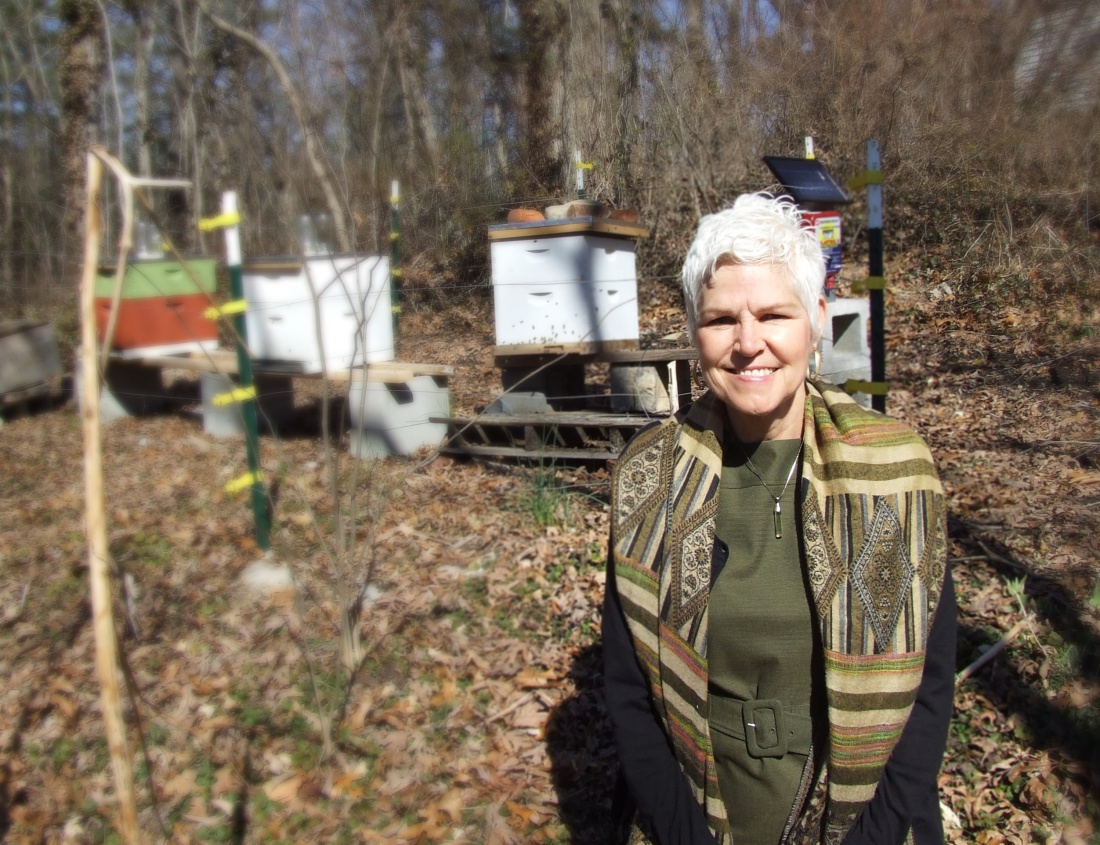Phyllis Stiles‘ earliest memories are of bugs: Of a writing spider spinning its web in shrubbery, of a prickly locust exoskeleton on a tree. It’s no wonder then that she would found Bee City USA and become an advocate for insects of all kinds, especially pollinators.
The world as we know it depends on pollinators, says Stiles. “Imagine going to the grocery store and finding almost no vegetables, almost no fruit and almost no nuts. Then imagine if 80 percent of the world’s flowers were gone, because 80 percent depend on animal pollinators to reproduce. Imagine a world without honey!”
Stiles first heard “the call of the bees” in 2006, when colony collapse disorder made national news, and beekeepers across the country experienced massive losses in their hives. Stiles and her husband attended “bee school,” a weekend course held annually at the Folk Art Center, a program sponsored by the Center for Honeybee Research and the Buncombe County Beekeepers Chapter. “I was captivated,” Stiles says. “When you become aware of their complex society, of how smart, how organized and how efficient they are, it’s hard not to be impressed.”
As reports of colony collapse grew worse, however, backyard beekeeping just wasn’t enough for Stiles. “I thought of Margaret Mead’s saying, ‘Never doubt that a small group of thoughtful, committed citizens can change the world. Indeed it’s the only thing that ever has.’ And I thought, OK, I want to do something.”
In August 2011 at the monthly Buncombe County Beekeeping meeting, Stiles made an announcement: She wanted to get the city involved in sustaining pollinator communities. Local citizens rallied beside her, and by June 26, 2012, Asheville City Council voted unanimously to become the inaugural Bee City USA.
The initiative, with over 80 active volunteers, works to plant pollinator gardens across the city, encourages pollinator-friendly landscape design, identifies native plants that best support pollinators and advises pesticide-free practices. The Bee City model has taken flight in cities across the country, including other cities North Carolina, as well as Oregon and Maine.
For Stiles, this work is a confirmation that passionate local communities can create change. After watching a video of an Asheland, Ore., city council meeting on becoming a Bee City in December 2014, Stiles, moved to tears, thought, “Margret Mead was right. I so believe that to be true.”




Before you comment
The comments section is here to provide a platform for civil dialogue on the issues we face together as a local community. Xpress is committed to offering this platform for all voices, but when the tone of the discussion gets nasty or strays off topic, we believe many people choose not to participate. Xpress editors are determined to moderate comments to ensure a constructive interchange is maintained. All comments judged not to be in keeping with the spirit of civil discourse will be removed and repeat violators will be banned. See here for our terms of service. Thank you for being part of this effort to promote respectful discussion.